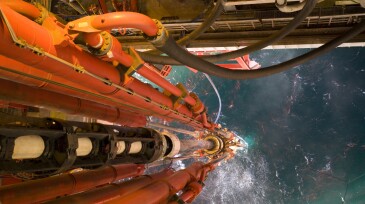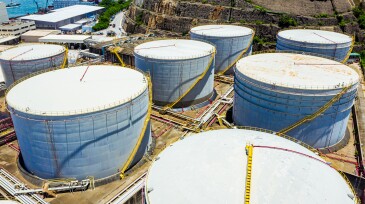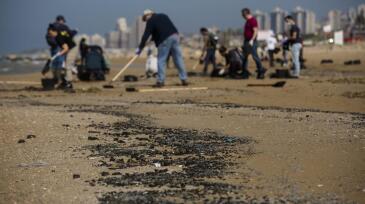Safety
The company said its frequency of serious incidents was down at the end of the year from its levels at the end of 2024.
This paper examines how real-time monitoring can improve both incident prevention and emergency response in the oil and gas industry. Drawing from real-world examples and case studies, it provides practical strategies for implementing this technology effectively.
This paper presents a novel application of artificial intelligence in computer vision for automating blowout-preventer pressure-chart-data extraction, demonstrating significant efficiency gains and a high return on investment.
-
Large-scale immersive simulators will be integrated with basic safety and survival training and lessons learned from both service companies and operators.
-
The American National Standards Institute accredited three of the American Petroleum Institute’s inspector certifications for pressure vessels, piping, and aboveground storage tanks.
-
Saudi Aramco is accelerating the adoption and scaleup of disruptive and multipurpose robotic technologies to deliver safer, cost-effective, and efficient inspection capabilities, emergency response, aerial mapping, project monitoring, security surveillance, and environmental monitoring.
-
On 20 April 2010, a kick and blowout in the Gulf of Mexico resulted in a series of explosions that killed 11 people and started an environmental disaster. Now, 11 years later, government and industry continue the drive to improve safety.
-
An autonomous robot will be deployed on an offshore platform for the first time by Equinor. The operator plans to use it as its eyes and sensors on future platforms where humans will visit only intermittently.
-
SponsoredWhite Paper—The Ultimate Guide to e-Permit to Work: The Top Three Benefits of Moving Away From PaperMoving to an electronic permitting process can ensure proper and timely authorizations for work between office and field.
-
The organization has published new procedures designed to provide the required safety level in transporting CO2 by pipelines and strengthen the development of carbon capture and storage projects.
-
This paper considers transportation safety and risk evaluation of liquefied natural gas, with emphasis on accidental release and vapor flame.
-
This different way of looking at cultural maturity through the lens of what should be expected of supervisors and employees may help organizations develop plans and strategies to achieve an incident- and injury-free workplace.
-
A massive oil spill off the coast of Israel is being called the worst ecological disasters in the Mediterranean country’s history. The cause and full extent of the damage is still unknown.













